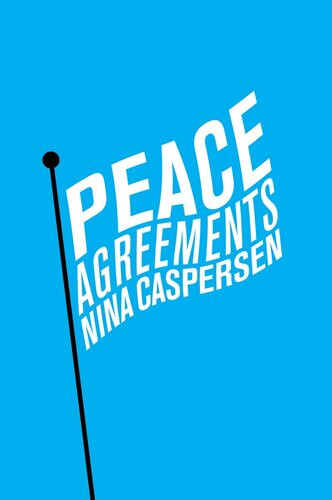

Most ebook files are in PDF format, so you can easily read them using various software such as Foxit Reader or directly on the Google Chrome browser.
Some ebook files are released by publishers in other formats such as .awz, .mobi, .epub, .fb2, etc. You may need to install specific software to read these formats on mobile/PC, such as Calibre.
Please read the tutorial at this link. https://ebooknice.com/page/post?id=faq
We offer FREE conversion to the popular formats you request; however, this may take some time. Therefore, right after payment, please email us, and we will try to provide the service as quickly as possible.
For some exceptional file formats or broken links (if any), please refrain from opening any disputes. Instead, email us first, and we will try to assist within a maximum of 6 hours.
EbookNice Team

Status:
Available0.0
0 reviewsSince the end of the Cold War a significant number of peace agreements have been signed, many of them in bloody intra-state conflicts that were previously thought beyond resolution. How have these agreements addressed issues of territory, security, power and justice? Do they reveal a blueprint for peace, and what can we learn from both their successes and their failures?
This timely book provides a comprehensive and cutting-edge analysis of peace agreements signed in separatist conflicts from 1990 to the present day. Drawing on a diverse range of cases, including Bosnia, Indonesia, the Philippines, Sudan, Israel-Palestine and Ukraine, it analyses the different peace 'packages', focusing on the interaction of the elements in play, and exploring the impact of political contestation within conflict parties and of peace process dynamics.
Though some of these agreements have displayed great ingenuity in finding lasting solutions, many have relied on more traditional, and often problematic, designs. For all such agreements, the enduring challenge is that of ensuring flexibility while avoiding destructive ambiguity. This is why the content of peace agreements really matters - not only to sustain peace once it is achieved but to make the prospect of peace possible in the first place.